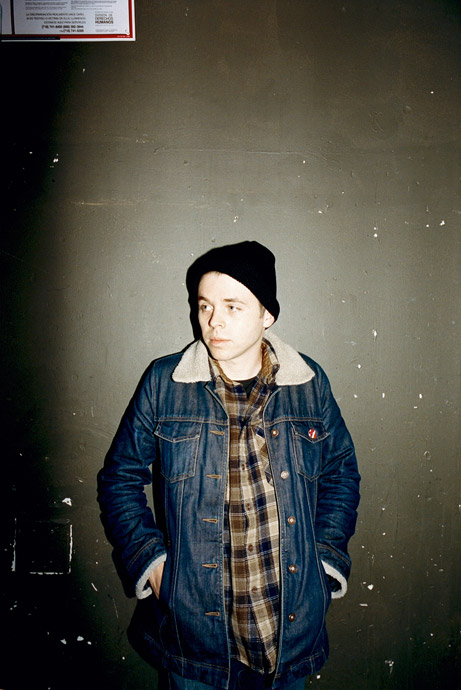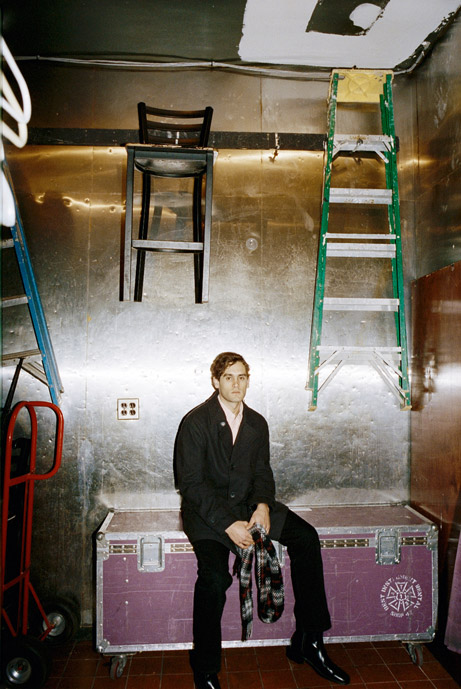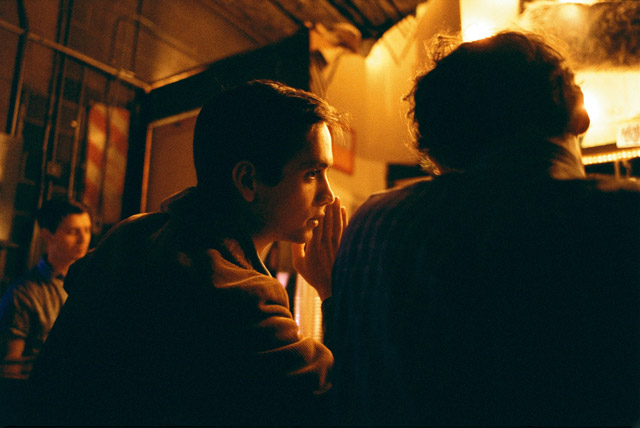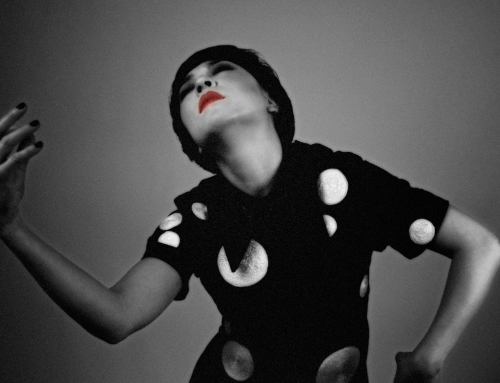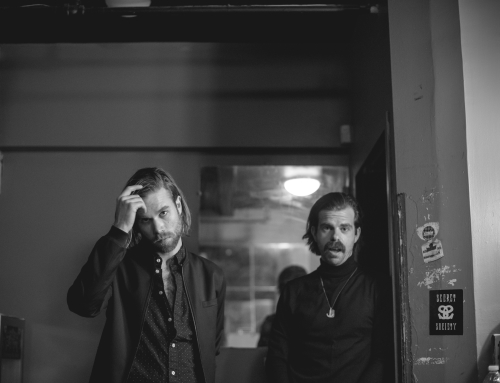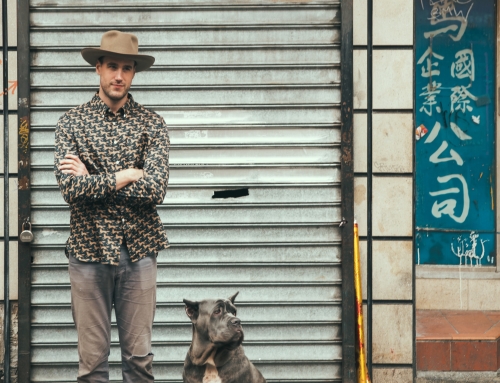With a vintage 70’s aesthetic and a sound that turns the idea of genre on its head, it’s safe to say that though they may be weird, The Strange Boys are definitely ‘good weird.’
But what is it that makes them so strange? For one, the recording process for last fall’s album, Live Music, was anything but conventional. The initial tracks, recorded and mixed by the band themselves, were shot down by their label, and the group was forced to go back to the drawing board. The outcome: a tight, groovy, rock album that walks the fine line between personal creativity and the inevitability of working for the man. But what is even more surprising is front man Ryan Sambol’s humble ability to embrace this balance, admitting that the second recording is definitely the better cut.
Brothers Ryan and Phillip have been playing together for 10 years. Their music draws from an extensive variety of rhythm and blues, country, Motown and rock, and Live Music clearly shows it’s more than just the name of their third album, it’s their mantra. Even as their line-up and labels have changed over the years, their music is deeply connected to the lives they live.
Songs like “You and Me,” which seem to take the listener right inside Ryan’s (the group’s official songwriter) head — or in this case, heart — show an honesty in his lyrics not often found in today’s pop musicians. The album quickly picks up beat with Beatles-inspired “Omnia Boa”, though mellows again quickly with the sincere piano ballad “Saddest.” The album is filled with slow melodies, and their pop-inspired piano and guitar riffs are reminiscent of something expected from The Stones. Their use of the harmonica adds life with a whole new variety of sound.
Scheduled to perform at SXSW this March, The Strange Boys are crusing on the momentum of Live Music. We caught up with the band in New York recently and had a chance to speak with Ryan, who indulged FILLER with some of the secrets behind the boys’ lastest muscial creation.

Where did the name of the new album, Live Music come from, and how does it relate to your relationship with live music?
It’s actually pronounced live [as in to be alive] music, and it’s kind of what we do. It works both ways: we play live music, and we live music, and it’s our fun and it’s our way of making money and it’s our way of meeting people and it’s kind of all of it.
How does it relate to your live show experience, is it more about your life outside of that?
I guess it’s kind of both. They are one and the same, often times.
You’ve been a band for so long, is it even possible for you to separate your music from your life at this point?
For me, at least, being the songwriter, I think it would hurt if I did disconnect any more. I think it helps having them being so close, just for honesty and stuff like that. Maybe at one point we could have separated them, but at this point, at least, I can’t, or wouldn’t want to.
You also don’t seem to want to be classifiable, in terms of sound I mean. If you had to, what genre would you call yourselves or do you even believe in genre?
I don’t think we mind it too much, but I think we are more just music. Music kind of sums it up the best. I guess rock and roll if I had to say anything, but I don’t think we are one specific thing … or I don’t want to be, at least .
Your albums seem to be leaning more and more toward a grassroots sound. I read in your interview with Texas Monthly that this comes from listening to Hank Williams. Any other country or grass roots artists that have influenced this gradual shift?
He’s always an influence. I’m not sure about this record, but in songwriting in general he’s one of the best there ever was for sure. But you know … John Lennon’s first solo album, Plastic Ono Band, some Nina Simone stuff, some African music. I think it’s not as important as what the actual record sounds like. We don’t want people to judge it solely off what we were listening to at the time; it’s a minor detail, probably.
What was your headspace like when you were recording this?
There were two sessions that were really spaced out so it was really different. One was done really fast and one was done a little slower, and one was done in California and one was done in Texas, one we were staying in a hotel and one we were staying at home, so maybe one is a little more comfortable and you just try to think, you know, if what you are doing is any good all the time, so just trying to relax and make the best decisions, for better or worse, whatever happens.
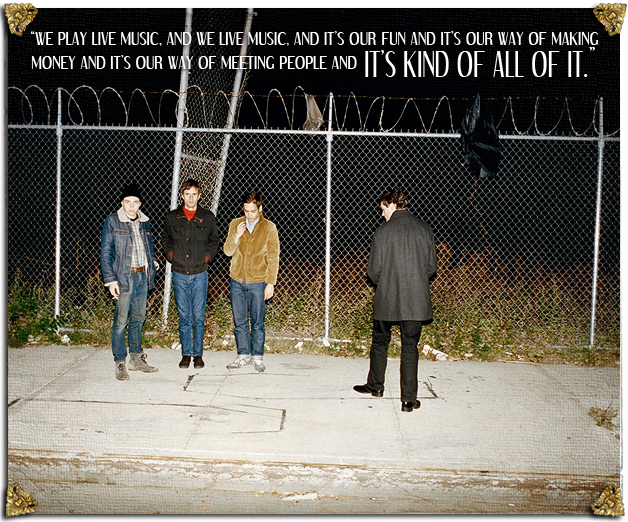
It seems like quite the creative process for you? What’s shifted since gaining all your experience writing and producing music?
Will — trying to make good art, and some contemporaries around you [who] are also making good stuff and you want to have something else that you can play for them that they can think its on the same level, and at the same time trying to make the record label happy enough to release it.
Lot of push and pull then, huh?
That’s why we did two sessions … the first one wasn’t received as good enough for a whole album, and at first it was kind of a blow but then the record ended up better because of it.
How do you feel about outside influence?
You kind of can’t avoid it … unless you write hits, ya know…
Where does the album fall on an emotional scale?
For me? Well, each song is different so it’s tough to say as a whole … in a person’s life in one year so much can happen. Last year was quite eventful on certain personal and professional levels so those things show up and stretch and change.








